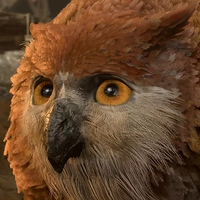'A triumph': Brian Fargo, Mike Laidlaw, and other RPG architects weigh in on Baldur's Gate 3
Creative forces behind series like Fallout, Dragon Age, The Elder Scrolls, and Pillars of Eternity react to Baldur's Gate 3.

We've just given Baldur's Gate 3 one of the highest review scores ever awarded in PC Gamer's 30-year history, putting Larian's RPG the company of just a handful of other games, including Half-Life 2 and Sid Meier's Alpha Centauri. It's an extraordinary RPG and already an all-time favorite for many on the team—although I doubt any of us except Fraser, who wrote our Baldur's Gate 3 review, have finished it yet.
As the sequel to a 23-year-old RPG that was made by BioWare and published by Interplay and Black Isle—creators of Wasteland, Fallout, Planescape: Torment, Icewind Dale, and more—Baldur's Gate 3 carries on the "computer roleplaying game" tradition that has produced, or at least preceded and heavily influenced, many of PC Gamer's other favorite RPGs. Having given our verdict, we asked around for Baldur's Gate 3 launch reactions from Larian's contemporaries and predecessors, and heard back from some of the most influential directors, designers, and writers of PC RPGs from the past 30-plus years:
- Brian Fargo, founder of Interplay and InXile (where he's revived the Wasteland and Bard's Tale RPGs), who hasn't had a chance to play Baldur's Gate 3 yet, but is jealous that Larian landed the license and "made it an even bigger success than imagined".
- Former Dragon Age creative director Mike Laidlaw, who's been making liberal use of improvised weapons and talks to every animal.
- Former Bethesda lead producer Jeff Gardiner, who says that Baldur's Gate 3 is a "masterpiece," despite his character being humbled by goblins.
- Obsidian studio design director Josh Sawyer, who's having fun getting into and out of trouble, and puts his critical eye to the interface.
- Former Obsidian narrative designer Lis Moberly, who contemplates the meaning and potency of Baldur's Gate 3's plague narrative.
- Spiderweb Software founder Jeff Vogel, who takes Baldur's Gate 3 as good news for all RPG developers, because "successful RPGs make more RPG fans".
Here's what they had to say:
My thought on the launch was that I was jealous as I (and Feargus [Urquhart, CEO of Obsidian Entertainment]) chased that license for more than a decade and Larian finally landed it and made it an even bigger success than imagined. And seeing the approach and success of Divinity: [Original Sin] 2, Larian was a very smart choice.
I also admit I'm afraid to begin when I hear stories about people wandering around in the mountains for 60 hours while barely pushing forward into the main story. Reminds of when Red Dead 2 stole weeks of my life away, though it was a helluva good time.

Past: BioWare, lead writer, lead designer, creative director Present: Yellow Brick Games, chief creative officer Next game: TBA fantasy action RPG
I never tire of having Karlach chuck half the room's furniture directly into the boss's face.
Mike Laidlaw
If you ask me, Baldur's Gate 3 is a triumph. The throughline of robust world interactions and fun turn-based combat is obvious from the Divinity: Original Sin games, and the way the team have managed to weave the themes—and even some of the characters—of the originals into an all new story is very impressive. I'm not actively playing [D&D] fifth edition, but this interpretation of the rules feels robust and lets me pull off some pretty cool stunts, mixing jumps and so on into combat, that makes the space feel very alive. That and I never tire of having Karlach chuck half the room's furniture directly into the boss's face.
The little details still get me, though: a cow who, thanks to my habitual use of speak to animals, reminds me I should "try the grass," or the poor terrified chicken who just yells, "ESCAPE!" in the goblin camp. These moments bring the world to life.
Keep up to date with the most important stories and the best deals, as picked by the PC Gamer team.
My only complaint is that I want to always wash my face when I change for bed. Skin care is very important, folks.

Past: Bethesda Game Studios, lead producer Present: Something Wicked Games, founder Next game: Wyrdsong
My expectations for Balder's Gate 3 could not have been higher. I grew up playing Dungeons & Dragons, DMing campaigns in musty basements for most of my upbringing. After getting my master's degree instead of looking for a job I obsessively played Baldur’s Gate 2. I'd wake up in the morning, order Domino's Pizza and four liters of Diet Coke and proceed to play for 16 hours straight… for eight days straight. Within an hour of booting up BG3, Larian had not only met my unrealistically high expectations but far exceeded them.
Baldur's Gate 3 is a masterpiece. I am constantly astonished by the level of detail, the choices, the tactical decisions in combat, the attention to the character models, the VFX, and the way everything comes together. It's a marvelous, magical masterpiece that immediately suspends my disbelief every second I'm playing. I'm as obsessed with it as I was with Baldur's Gate 2. I'm running a solo campaign as well as a separate campaign playing co-op with my wife. In both campaigns, we're playing as mostly good characters, and despite that—because of the way the persuasion system works and the amount of subtlety in the decisions you make—we are experiencing vastly different games. These aren't just "pinch points" that are common in most RPGs, these are vast differences that build up over time. It's a real marvel to behold in a master class of RPG design.
I'm thrilled by wonderful RPGs, am thrilled that this game exists, and I cannot wait to play more.
Jeff Gardiner
An example of this sprawling spiraling branching decision-making is something that happens about halfway through Act 1. So if you haven't gotten here, this is a massive spoiler alert!
At this point in the story, you're confronted with a goblin camp. Most of the D&D I played was second edition, where you were taught that you go in spells blazing screaming "Kill 'em all!" However, if you do that in BG3, you end up in a precarious situation that usually ends in a party wipe. Learning this the hard way, I decided to proceed with caution. I've talked to several people and there are so many ways to approach this camp, but I decided to walk up to the front gates and charm my way in. Despite succeeding on all my rolls, the goblin asked me to do something. He asked me to rub shit on my face. Not only shit, but Worg shit. So, grimacing, I proceeded to do so and then my character model for the next several hours had a big schmear of crusted turd running down his face. Not only that, but I proceeded to be ridiculed and mocked by every goblin in the camp. This level of detail and thoughtfulness is put into every corner of this game.
I'm thrilled by wonderful RPGs, am thrilled that this game exists, and I cannot wait to play more. Larian deserves all the praise and success being heaped on them.

Past: Black Isle Studios, lead designer Present: Obsidian Entertainment, studio design director
I'm still making my way through Act I content, but I think I've seen enough to form some basic thoughts. The production values are crazy high, especially for a party-based D&D CRPG of this scope. I can see their dialogue trees in my mind's eye and even if a lot of the cinematic setup for those conversations are automated, it's a massive amount of work to stage them.
At its core, it still very much feels like an evolution of Divinity: Original Sin 2 using the 5E ruleset. The tone of the story and the companions feels pretty spot-on for a Baldur's Gate game: mostly light and fun with dark elements thrown in for a gleefully wicked edge. As with D:OS2, the level of interactivity in the world is extremely high and being able to work yourself out of (or into) tight corners by fiddling with the rules is a lot of fun.
I really like how consumables (eg, scrolls) and spells that can affect dialogue are incorporated into dialogue checks. It's something I've always wanted to do and I think it works really well in BG3.
Josh Sawyer
I think there are only two areas of real criticism I have. One is that the UI can feel clumsy and clunky for a lot of actions. There are so many contextual actions you can perform on objects that the menus can get overloaded—and a lot of those actions are never tutorialized. The camera also continues to be a weak spot. I admit it's a personal and professional bias, but when I'm fighting the camera just to navigate a space or avoid mis-clicking on a faraway location, it's not an enjoyable experience.
The other is a bit more pervasive, but the way things like conversations and other interactions work in singleplayer feel significantly compromised by supporting a specific type of untethered multiplayer experience. For example, the lack of a straightforward, easily-accessible pause button in singleplayer is extremely jarring, especially considering how easy it is to accidentally start characters pathing toward a distant location via a dangerous route. Also the way that conversations can be entered, with lagging characters hovering in the background because they were a few steps outside of the radius, feels unnecessarily penalizing for someone who's just trying to go with the flow of the singleplayer campaign.
One more thought: I really like how consumables (eg, scrolls) and spells that can affect dialogue are incorporated into dialogue checks. It's something I've always wanted to do and I think it works really well in BG3.

Past: Obsidian Entertainment, WB Games writer and narrative designer Present: TBA
What is the most striking to me is how Baldur's Gate 3 has taken part in the wave of plague narratives embraced by fantasy games in the last year, particularly among RPGs. While Baldur's Gate 3 was in development long before the pandemic, the concept of mass infection and its consequences cannot help but be recontextualized for this generation of players. At their core, plague narratives contrast the possible loss of life with the loss of our personhood.
The abundance of dialogue checks reflects this idea of loss amid infection immediately. In many RPGs, it is common to see no more than one or two checks in a dialogue choice bank, which often leads players to select them by default. Some games temper this impulse by ensuring that selecting a unique option does not always guarantee a positive result. However, BG33 pulls back on this impulse and then proceeds to tip it over the edge. Larian provides an avalanche of ways to persuade, intimidate, and use your experience as a specific species or class in each choice bank of all significant conversations. This accurately reflects the narrative BG3 has woven. Infection and plague happen in more than one way. It is physical, psychological, and relational. As Jill Lepore wrote so aptly of plague narratives for the New Yorker in 2020, "Reading is an infection, a burrowing into the brain: books contaminate, metaphorically, and even microbiologically." And as players, that infection is something we want. The conversations of BG3 make us feel powerful. It is the same experience our character is having as they embrace or resist the infection burrowed within them. In this way, BG3's conversation system reflects the story it tells. Like all plague narratives, the crux of your experience in the game is a choice to risk your physical life, or risk who you are as a person by succumbing to the power and control you hold.
And the game makes it clear—who you are as a person is understood by the relationships you choose to build. Your companions demonstrate this through the reactivity you see to the choices made throughout the game. It's my personal opinion that reactivity is the most pointed when characters the player has spent the most time with are impacted. This forces the player and the companion to reorient their relationship to reflect the player's actions. Whereas many would assume reactivity to the larger in-game choices or regional decisions a player made feel the most impactful, Larian reminds us it's the companions' reactions to smaller-scale choices made in side quests or world content that deal significant blows, because our companions were watching. After all, our choices carry the most weight when they impact the people we love.
Writing indie games for 30 years lets me have a lot of perspective. Baldur's Gate 2 came out in 2000, and it was a classic. Back then, I told people, "Hey, go ahead and play Baldur's Gate 2 before my games. It's really good, and my games will still be there when you're done." Baldur's Gate 3 is really good in the same ways, and I'm still saying the same thing.
I spent years stealing ideas from Baldur's Gate 2. Now I can spend years feeding off the new title. We all stand on the shoulders of giants.
Jeff Vogel
When I was just starting out in business, I freaked out whenever other RPGs came out because I was terrified of competition. Then I found that, when a hit RPG came out, it never affected my sales at all. I realized that successful RPGs make more RPG fans, which helps all us developers. When you see an ad for Baldur's Gate 3, it's not just selling that game. It's selling the whole idea of playing singleplayer RPGs.
Baldur's Gate 3 is turning into a phenomenon, and I couldn't be more thrilled. Larian really knows what they are doing. Our next game, Geneforge 2 - Infestation, will be out in March, which should be perfect timing. Six months after Baldur's Gate 3 came out, 6 months before they announce their DLC.
It also continues the traditions of my business. I spent years stealing ideas from Baldur's Gate 2. Now I can spend years feeding off the new title. We all stand on the shoulders of giants.
Correction: A previous version of this article misattributed a passage to Lis Moberly that should have been attributed to Jeff Gardiner.
Baldur's Gate 3 guide: Everything you need
Baldur's Gate 3 Soul Coins: Find them all
Baldur's Gate 3 infernal iron: Karlach collectibles
Baldur's Gate 3 owlbear cub: Befriend the bird
Baldur's Gate 3 find Halsin: Where's the bear?
Baldur's Gate 3 defiled temple: Solve the moon puzzle

Tyler grew up in Silicon Valley during the '80s and '90s, playing games like Zork and Arkanoid on early PCs. He was later captivated by Myst, SimCity, Civilization, Command & Conquer, all the shooters they call "boomer shooters" now, and PS1 classic Bushido Blade (that's right: he had Bleem!). Tyler joined PC Gamer in 2011, and today he's focused on the site's news coverage. His hobbies include amateur boxing and adding to his 1,200-plus hours in Rocket League.




